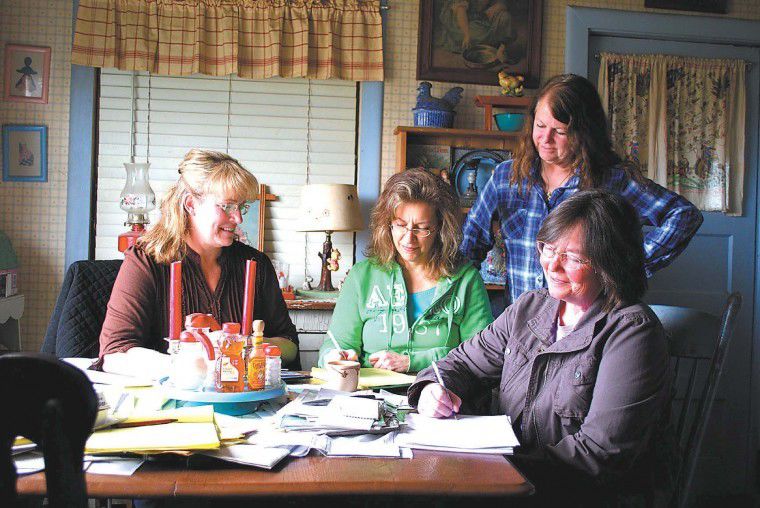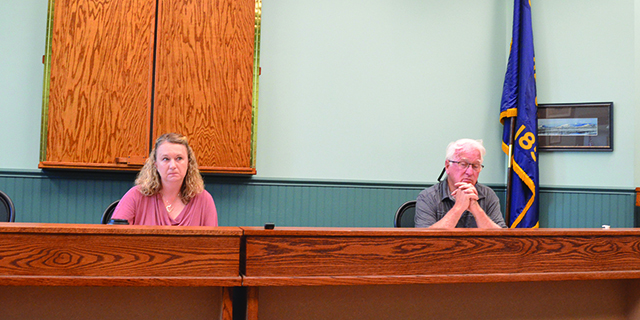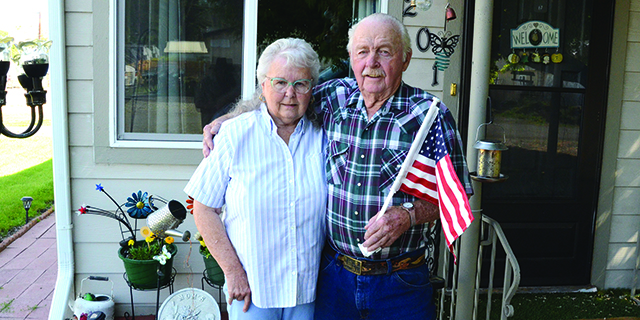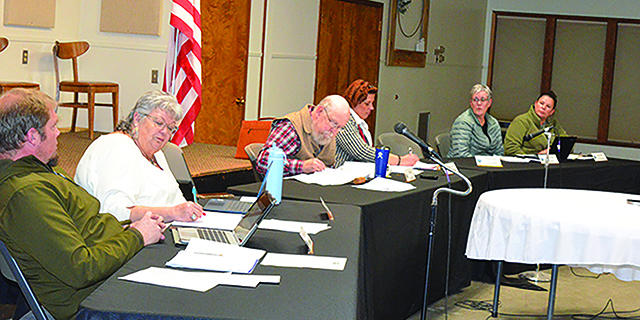Ranchers take wolf concerns to Salem
Published 5:00 pm Wednesday, April 6, 2011

- Members of the Wallowa County Stockgrowers education committee look over paperwork on the Eastern Oregon wolves. From left are Lori Butterfield, Lori Schaafsma, Ramona Phillips and Kerry Tienhaara.
Wallowa County livestock producers are on the front line of the gray wolf issue in Oregon and they say they are taking losses to their economic bottom-line.
Ranchers say the federal endangered species law and the Oregon Wolf Management and Conservation Plan does not allow them to kill wolves that prey upon their livestock. They took their concerns to state legislators on March 30.
The countys cattle producers feel the economic loss in more ways than just the outright killing of their stock by wolves, according to Oregon Cattlemens Association wolf coordinator and Wallowa County rancher Rod Childers.
Were looking at lower conception rates, lower body score conditions, handling and temperament changes and veterinarian bills for injured cows, Childers said. Nobody is picking up the vet bills. Right now with the compensation bill, it includes just dead cows, he added.
A group of Wallowa County livestock producers, led by Childers and Wallowa County Commission Chairman Mike Hayward testified in front of the Oregon State House of Representatives on March 30. The Oregon Cattlemens Association respectfully requests you to allow reasonable wolf management in Oregon by supporting HB 3560, HB 3561, HB 3562 and HB 3563, the OCA wrote to legislators. The OCA is asking for legislative support to let ranchers protect their families, property and livelihoods against wolves, according to the letter.
Rep. Greg Smith R-Heppner and Oregon State Sen. Doug Whitsettt R-Klamath Falls introduced the group from Wallowa County to the House Agriculture and Natural Resources Committee. I commend both of them, Childers said. They both recognize the situation livestock producers find themselves.
Hayward opened the testimony by explaining the Community Alliance Livestock Fund (C.A.L.F.) developed in Wallowa County, which is tied to House Bill 3560. If passed, the bill would authorize the Oregon Department of Agriculture to set up a compensation fund for wolf depredation available from federal, state, county and private donations. County governments would administer compensation funds.
The C.A.L.F. compensation program was developed by Wallowa County ranchers and approved by county commissioners. While there are currently no funds available for the C.A.L.F. fund, the county and ranchers plan on implementing the program for a year without making compensation payments.
The program wont make payments until 2012. The dry run will encourage ranchers to keep better records and to document their losses, Childers said.
Livestock producers are looking to establish a program to compensate for above-normal losses in their herds instead of the current system of payments only for livestock confirmed killed by wolves. Currently, the organization Defenders of Wildlife has a program to compensate for the confirmed losses. The Defenders program is set to end in September.
Childers said that the process of confirming livestock preyed upon by wolves now only recognizes about one of eight kills. Many ranchers cant survive with only confirming one of eight, he said.
A handful of ranchers in the county have been hit especially hard.
The problem with wolves is that they dont kill randomly, they go back to where theyve had success. One rancher lost about 15 to 16 calves in 2009 and 2010 and didnt know what was going on. The compensation fund on confirmed kills only paid for one of those, Childers said. This is where above normal losses would help.
The C.A.L.F. program is scheduled for a dry run during the next year, with no funds available yet. The dry-run will encourage ranchers to keep records and document their losses, he said.
Compensation protects the livestock producers livelihood and is integral in helping the small family ranches stay in business, wrote the OCA.
The ranchers testified on three other proposed bills while in Salem. The OCA testimony states: HB 3561 allows for the delisting of the wolf from the Oregon Endangered Species List upon establishment of four breeding pairs anywhere within the state. HB 3562 clarifies that a person may kill a wolf to protect their life or the life of someone else. HB 3563 would allow a rancher to take a wolf, once federally delisted, if it is within 500 feet of a residence or caught in the act of chasing, harassing, wounding or biting livestock, pets, and working or sporting dogs.
Ranchers are now working with state and federal agencies to mitigate livestock losses using several non-lethal methods to haze wolves, including stringing fladry (red ribbons hung on an electrified fencing wire), installing rag boxes that activate when a collared wolf approaches and employing a person to ride the range to provide a human presence near the wolf packs.
Another group from the county to testify included the Wallowa County Stockgrowers education committee.
We testified about the wolves on the east moraine and their proximity to town, Joseph area rancher Ramona Phillips said.
Another member of the education committee Lori Schaafsma has seen the wolves out her kitchen window several times as they run what she calls the wolf highway which follows the ridge lines and comes to within two miles of Joseph.
They are crossing our property and my biggest concern is where my kids are, she said.
Our group is trying to get our message out through education. I dont think people, even the locals know what were going through, Schaafsma said.
The private property rights issue is what were hammering, rancher Kerry Tienhaara said. Were taking incremental steps and eventually would like to be able to remove problem wolves.
The committee is working on an educational program about agriculture in general and includes information on the wolves.





